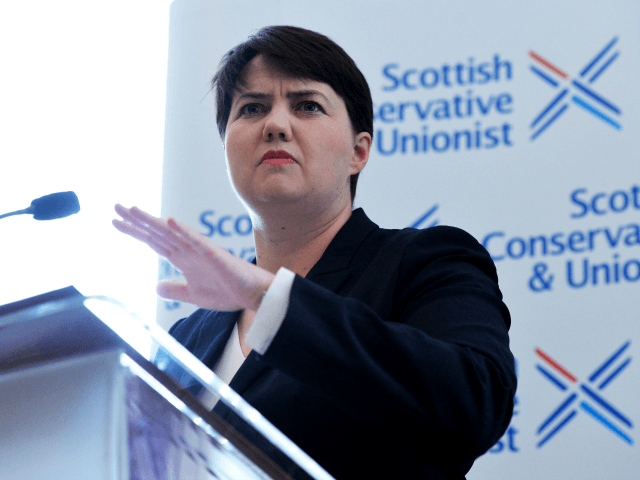Ruth Davidson, the Europhile leader of the Scottish Conservative Party, will use her newfound influence in Parliament to push for a so-called ‘Soft Brexit’ which puts the Single Market ahead of controlling immigration.
Davidson is reported to have pressed her case in a private meeting with Theresa May and a meeting of the “political cabinet” which she attended shortly afterwards.
She told BBC Scotland there was now “a clear understanding that the prime pursuit as we leave the European Union is to make sure that we look after the economy and that we prioritise free trade and I think there was a general consensus on that”.
The leader of the Scottish Conservatives joined Trades Union Congress General Secretary Frances O’Grady and London Mayor Sadiq Khan as one of three speakers put up by the Remain campaign for ‘The Great Debate‘ which closed out the referendum contest in June 2016.
A month after the Leave vote, the 38-year-old told the BBC she wanted “to stay in the Single Market … even if a consequence of that is maintaining Free Movement“.
Davidson appeared to climb down from this stance in December 2016, however, amidst growing recognition from even ardent Europhiles such as leading Liberal Democrat politician Vince Cable, that remaining subject to the EU’s open borders rules had become untenable.
But she agreed with Tory Remainers like Anna Soubry that a big majority for Theresa May after the June 8th snap election could lessen the influence of “Brexiteer bastards” on the Tory backbenches and allow Brexit to be watered down.
As it turned out, the Tories lost their majority, being able to hang on to office thanks only to gains by Davidson’s branch of the party in Scotland. This provides even greater opportunities for interference by Remain holdouts.
A spokesman for Davidson confirmed to Reuters she now hopes to force the prime minister into a deal which would keep Britain within the Single Market and subject to its Free Movement regime, “but she is aware that we are negotiating and you don’t always get what you want in a negotiation”.
Questions are being raised about the growing narrative that May’s failure to win a majority was a rejection of a so-called “Hard Brexit”, however.
The Tories and the Labour Party both pledged to end Free Movement in their manifestos, meaning that over 80 per cent of MPs were elected on a “Hard Brexit” platform.
Labour Shadow Chancellor John McDonnell recently conceded that voters would “interpret [continued] membership of the Single Market as not respecting [the EU] referendum”.

COMMENTS
Please let us know if you're having issues with commenting.